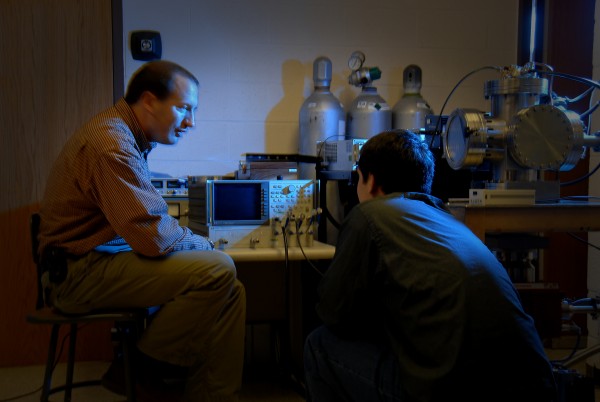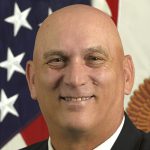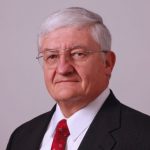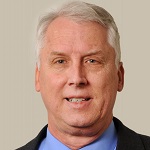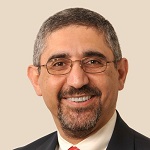
A Department of Firsts
North Carolina State University’s Department of Nuclear Engineering is the only nuclear engineering program in North Carolina and a premier nuclear engineering department in the United States.
Our department has a unique history. It is home to the first university-based nuclear reactor and associated Nuclear Reactor Program dedicated to teaching, research and extension. It is also the led university in two unique consortia:
- The U.S. Department of Energy-funded Consortium for Advanced Simulation of Light Water Reactors (CASL)used advanced computer simulations to create safer, more cost-effective nuclear power plants.
- The Consortium for Nonproliferation Enabling Capabilities (CNEC) was funded by the National Nuclear Security Administration’s (NNSA’s) Office of Defense Nuclear Nonproliferation (DNN R&D) Proliferation Detection Program (PDP). The PDP developed technologies to detect foreign nuclear weapons development activities; to support nuclear arms control treaties verification and monitoring for compliance; and to support national nuclear security more broadly.
- The Consortium for Nuclear Power (CNP) was established in March 2017.The mission is to promote research and development, innovation, education, and training as well as provision of technical support/expert advice/consultancy services that benefit the nuclear industry and its regulation
- The Nuclear Reactor Program Center (NRP), focuses to enhance, promote, and utilize the PULSTAR research reactor and associated facilities in an exemplary manner, leading to national recognition as a premier 1-MW Nuclear Reactor Program dedicated to research, teaching, and extension.
- The National University Consortium (NUC), established by INL with North Carolina State University as one of the founding members, collaborates research that strengthens the portfolios of INL and universities and furthers the nation’s strategic nuclear energy objectives.
In addition to the consortia, our department houses multiple research groups and programs:
- The 4th State Application Research Group (4-STAR), focuses in the area of industrial applications of plasma discharges, enhancing current plasma applications and developing new plasma applications for next generation material and device fabrication.
- The MultiPhase Research Group (MPRG), focuses on using multiscale approaches for nuclear reactor simulations, development of new spectral cascade transfer multiphase flow turbulence models, and direct numerical simulation of single and multiphase turbulent flows.
- The Nuclear Materials Group (NMG), revolves around developing a mechanistic understanding of microstructure property relationships in nuclear materials, with an emphasis on microstructure evolution under harsh environment and how it can impact the macroscopic properties and performance.
- The Plasma for Life Sciences (PLS), studies the interactions of technical plasmas with biological systems on a macromolecular level and the characterization and optimization of plasma discharges used for biomedical applications and understanding and improvement of plasmas used in medicine.
- The Probabilistic Risk Assessment Group (PRAG), focus includes theories, applications, and simulation-based techniques in risk sciences such as traditional and dynamic probabilistic risk assessment, reliability analysis, resilient systems design, probabilistic physics of failure modeling, and Bayesian inference.
- The Radiation Detector Materials and Device Group, focuses on the development of advanced materials for radiation detection. We are also interested in investigating radiation effects in electronic, optical and structural materials and developing radiation-resistant materials.
- The Radiation Detection Applications in Nuclear Security (RADIANS), focuses on applying advanced radiation measurement and analysis methods to meet current and future challenges to the missions of nuclear security.
- The Reactor Dynamics and Fuel Modelling Group (RDFMG), established at Penn State has been recently moved to North Carolina State University. RDFMG has established expertise and experience in developing, validation, and application of methodologies in core neutronics, core and system thermal-hydraulics, and coupled neutronics/thermal-hydraulics/fuel performance calculations.
- The Retrospective Dosimetry and Nuclear Assay (RDNA), focuses on measurement techniques which can reconstruct historical radiological operations and materials spanning emergency response, forensics and air monitoring applications.
Additionally, the department has faculty participating in collaborative research with other departments:
- The Center for Nuclear Energy Facilities and Structures, performs research on innovative but rigorous solutions to problems in nuclear power plants and to transfer this technology to the industry. These solutions reduce uncertainty, increase safety and reduce the cost of operation of existing plants and of building new ones.
Students First
As one of the smaller departments in the College of Engineering, interaction between faculty and students is high! Through our degree programs and research, we have increased opportunities for student learning in fission reactor engineering, radiation applications, nuclear materials, computational science, plasma science, radiological engineering and fusion engineering. Nuclear engineering graduates enter a wide spectrum of professions, from medical therapy and imaging to nuclear power production. Students find our department a challenging and collegial environment for study, research and innovation. We also encourage participation in student organizations.
First-Class Degrees
Nuclear Engineering is a multidisciplinary field engaged in the development, design, deployment and analysis of methods and devices that utilize fundamental nuclear processes. These processes include natural and induced radioactive decay, the splitting of heavy atomic nuclei (fission), and the merging of light nuclei (fusion). Our undergraduate curriculum prepares students to step into industry or continue into graduate work. In the graduate programs, students work closely with faculty members in research thrust areas. Our programs include:
- Bachelor of Science in Nuclear Engineering (BS)
- Undergraduate Minor in Nuclear Engineering
- Undergraduate Minor in Health Physics
- Accelerated Master’s in Nuclear Engineering (BS-MS, BS-MNE)
- Master of Science in Nuclear Engineering (MS)
- Master of Nuclear Engineering (MNE, available on campus and online)
- Doctor of Philosophy (PhD)
Alumni Firsts
Some of our alums have been recognized by the department and college with Distinguished Engineering Alumni Awards for their exceptional accomplishments. Our graduates typically become leaders in their fields. They represent and give back to the department, creating a beneficial cycle of academic and professional success. We are very proud of our alumni, who remain part of this department always.
Distinguished Faculty
Nuclear Engineering faculty are highly regarded for advancing innovative technology and research. Click here to see the distinguished faculty of the department of Nuclear Engineering.

